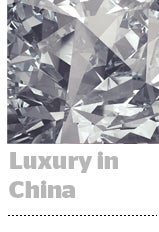 Programmatic buying is becoming increasingly important to the China advertising industry. But in recent weeks, executives, including Publicis’ Maurice Levy, have shared how a dip in the luxury market in China has affected their business.
Programmatic buying is becoming increasingly important to the China advertising industry. But in recent weeks, executives, including Publicis’ Maurice Levy, have shared how a dip in the luxury market in China has affected their business.
We reached out to several industry executives in China with the following question:
How is the slowdown in the China luxury market affecting the nascent market for programmatic media? And what has been the broader impact on advertising?
Please click below or scroll down for more:
- Steven Chang, president of ZenithOptimedia Greater China
- Alan Yan, CEO of AdChina
- Roy Zhou, CEO of Yoyi Media
- Grace Huang, CEO and co-founder of iPinYou
- Howard Smith, managing director of Clarity
Steven Chang, president of ZenithOptimedia Greater China
“The slowdown of the luxury market in China over the past two years will, in fact, affect the overall spending on all media as a whole. But the trend will be shifting more budgets to the digital side. For the digital area, the upward spending trends from the luxury clients lie on online video, social and some programmatic media.
The programmatic trading in China is in an early stage. [This] is obviously a hot trend but the scale is still small. The prediction is that PPB (programmatic premium buying) will become the primary buying method within demand-side platform buying in China, reaching 70% by 2017.
Luxury is one of the highest growth advertiser sectors for the past five years, averaging 30% to 50% increases per year until two years ago. This category is a major contributor in premium print titles, and is now expanding into the corresponding tablet/mobile versions. The category itself is not that big — not in the top 10 categories yet — so the slowdown of the luxury market does impact its contribution as a growing category.
However, as mentioned above, with overall budgets not that big, a lot of luxury clients may become more serious about building their brands through digital and mobile, believing they can reach the high-end consumers who are trendy and can afford the new devices or gadgets.”
Alan Yan, CEO of AdChina
“I do not see that much impact on programmatic by the recent slowdown in luxury market. The luxury market has never been a large sector in digital marketing so far, not to mention an advanced digital media transaction approach like programmatic. As for the impact on the general advertising market, including both digital and traditional media, I do see there is significant effect on particular sectors such as out-of-home.”
Roy Zhou, CEO of Yoyi Media
“The slowdown in the China luxury market has very limited or insignificant influence on the programmatic market in China. Currently, the big programmatic spenders are direct-response clients like gaming, ecommerce, travel and electronics. 2014 is witnessing a trend that branding clients, like automobile, FMCG (fast-moving consumer goods), finance and telecom are moving more budget to programmatic, while luxury goods are mainly spending on some top premium or vertical media, which is not on programmatic yet. So the slowdown in the luxury market might impact a few vertical media. However, on the flip side, this enables vertical media to open up more inventories to programmatic, which will help accelerate the growth of programmatic buying market in China.
The broader impact on the ad market is also insignificant as the decrease is compensated by new spending categories. In general, China’s digital advertising market has surpassed 100 billion RMB (US$17 billion) in 2013 and it will still grow at more than 30% year-over-year in the next three years.”
Grace Huang, CEO of iPinYou
“Luxury brands have not been an active player in programmatic buying. They used to be very particular about brand image and typically will buy in a traditional way: cost-per-day banners on vertical sites or big portals. However, there has been increasing demand for programmatic buying among luxury brands this year, including luxury cosmetic, luxury apparel and cars. I am not sure whether this is due to the slowdown, but I am confident that once they understand that programmatic buying actually can manage the advertising environment well and keep the premium image, they will flood more money into programmatic buying.”
Howard Smith, managing director of Clarity, a luxury media agency owned by Aegis Media
“In many respects, there is a slowdown in the luxury market. If you go back to 2012, it was an unprecedented year. We hadn’t seen the growth rates that we saw in the luxury market anywhere in the world. So when we say slowdown, we’re still talking about significant growth, just not double-digit growth. China is still growing rapidly if you compare it to the rest of the world, but it’s just not at those unprecedented levels we’ve seen historically.
As far as how that will impact advertising, I can’t read into the future, but our clients are not cutting budgets. We’re not seeing a decline in the market. The overall advertising market here in China is continuing to grow. The battleground is shifting away from awareness to engagement and retention. It’s not so much about what people are spending; it’s about how people are spending it. That’s where we’ll see the shift occur: toward retention strategies.”












